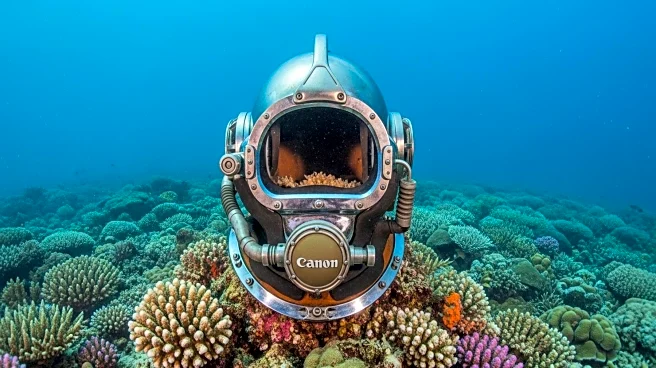What's Happening?
Trans-Tasman Resources (TTR) is seeking fast-track approval from the New Zealand government for its seabed mining project in the South Taranaki Bight. This move comes after previous applications were rejected. The project aims to establish the world's first large-scale commercial seabed mine in a region crucial for marine life, including pygmy blue whales and critically endangered dolphins. Greenpeace Aotearoa and Kiwis Against Seabed Mining (KASM) have been named as parties to be heard in the application process, and they have submitted expert advice to challenge the project. Concerns have been raised about the environmental impact, including the spread of fine sediment and noise pollution affecting marine species.
Why It's Important?
The approval of TTR's seabed mining project could set a precedent for similar projects globally, potentially leading to increased environmental degradation in ocean ecosystems. The South Taranaki Bight is a vital habitat for several endangered species, and mining activities could exacerbate their risk of extinction. Economically, while TTR claims benefits, critics argue that the environmental and cultural costs outweigh potential gains, with much of the financial benefits flowing offshore. The project also threatens renewable energy initiatives, as one company has already withdrawn from offshore wind investment due to the mining plans.
What's Next?
If the fast-track approval is granted, it could pave the way for more seabed mining projects, attracting interest from international companies. Greenpeace and other environmental groups are poised to continue their opposition, potentially leading to legal challenges or public protests. The New Zealand government faces pressure to balance economic interests with environmental protection, and any decision will likely influence future policy on ocean resource management.
Beyond the Headlines
The seabed mining debate highlights broader issues of environmental justice and the rights of indigenous communities. The project has been criticized for prioritizing short-term profits over long-term ecological sustainability and cultural heritage. The involvement of local communities and environmental groups underscores the need for inclusive decision-making processes that consider diverse perspectives and the protection of natural resources for future generations.








